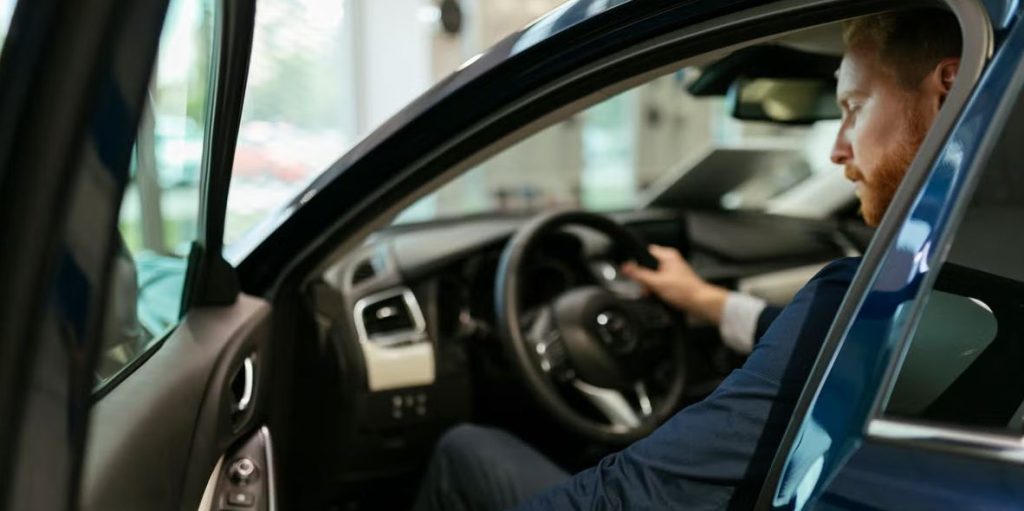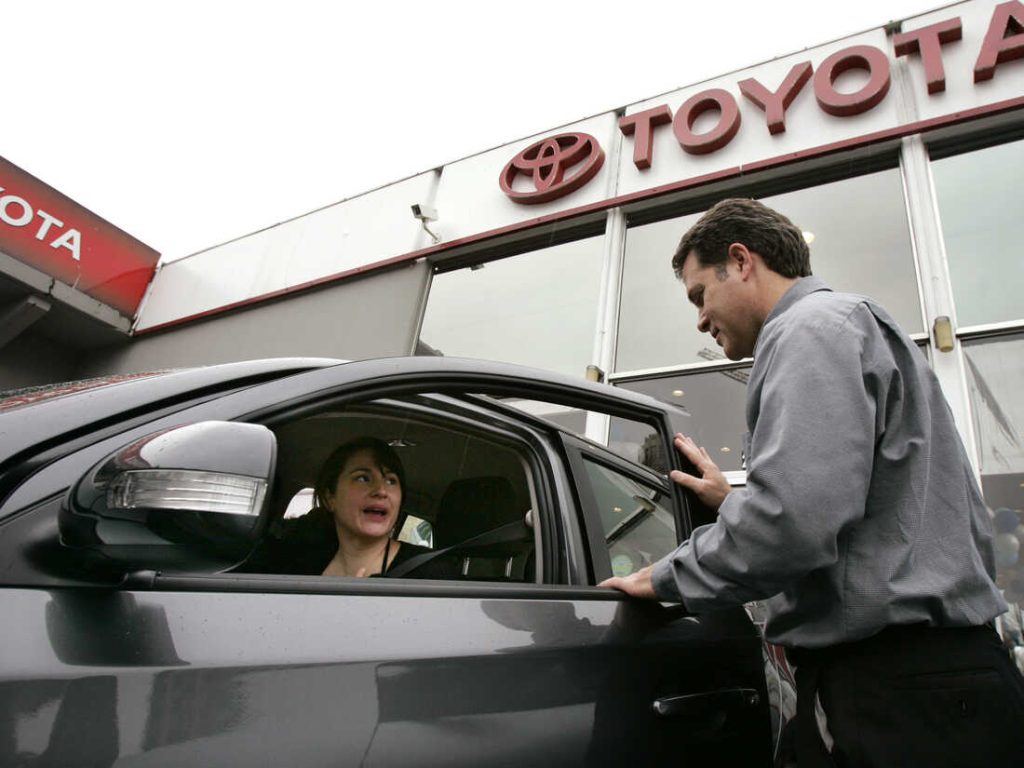TikToker Ash – car salesperson warns against test driving a car at a dealership. Why? Find out more in the article below.
The Emotional Trap of a Demo Ride
A test drive isn’t just about assessing handling and performance. It’s a carefully orchestrated experience. “They want you to form an emotional connection… so you’ll be so excited you’ll just say yes to whatever they say,” Ash explains. Before you know it, you’re picturing coffee runs and road trips—switching from objective buyer to impulsive purchaser. If your budget or terms don’t line up, it doesn’t matter once that emotional connection kicks in. A few laps around the block can hijack your composure, prompting a rushed purchase. Dealerships also keep you waiting—sometimes for hours—to drain your energy. Exhausted, many buyers cave just to escape the process .

Counterarguments: The Value of a Drive
But not everyone buys this advice. Critics argue skipping a test drive increases the risk of buyer’s remorse—especially with used cars. Reddit user Catsdrinkingbeer asserts:
“You can’t get a feel for your experience driving the car without physically doing that… None of that research can tell me. These are things I have to experience for myself”
And others point out that a 30-minute spin around different roads and conditions is essential: highway, hills, traffic—just getting that real-world feel matters.
A Better Strategy for Test Driving
If you still believe a test drive is a must, be proactive about it. Reddit advice recommends touring multiple dealerships over a weekend, rather than browsing aimlessly . Schedule appoinments for the models you’re considering, and treat each test drive as a pre-negotiation step—not the crescendo of your buying decision.
Another tip: when possible, test drive the same model outside a dealership setting. Renting the vehicle for a full day lets you really live with it—evaluate trunk space, tech features, seat comfort—without dealer influence
Know the Risks: Damage and Insurance
There’s also a practical minefield in test driving: if something goes wrong, you could be on the hook. A TikToker recounts a $1,000 repair after scratching a dealership’s car on a test drive—and insurers might reject a claim if coverage terms aren’t scrutinized. To protect yourself:
- Never sign paperwork you don’t fully understand.
- Confirm insurance coverage—both yours and the dealership’s—before driving off.
- Keep communication clear and documented in case anything happens

Final Verdict: Smart, Not Emotional
Test drives can help, but only if done on your terms. Here’s a refined approach:
- Decide first based on specs, reviews, and your budget—don’t let a ride sell you.
- Schedule and limit dealership test drives to informed comparison, not an emotional climax.
- Consider rental periods or friend-owned vehicles for a more honest feel.
- Protect yourself—know who covers damages, and steer clear of surprise fees or forms.
Conclusion
In short, don’t let excitement override reason. Drive smart, negotiate smarter, and get the car that truly suits your needs—without regret. While test driving may seem like an essential part of buying a car, it’s often used by dealerships as a psychological tactic to encourage impulse decisions. Forming an emotional connection with a vehicle can weaken your negotiating position and lead to rushed or overpriced purchases. That doesn’t mean test drives are entirely bad—they can still provide valuable insights—but they must be approached strategically. Always do your research first, test multiple cars without pressure, and never feel obligated to commit on the spot. By staying objective and informed, you can ensure your final decision is based on value and practicality—not just emotion.

















